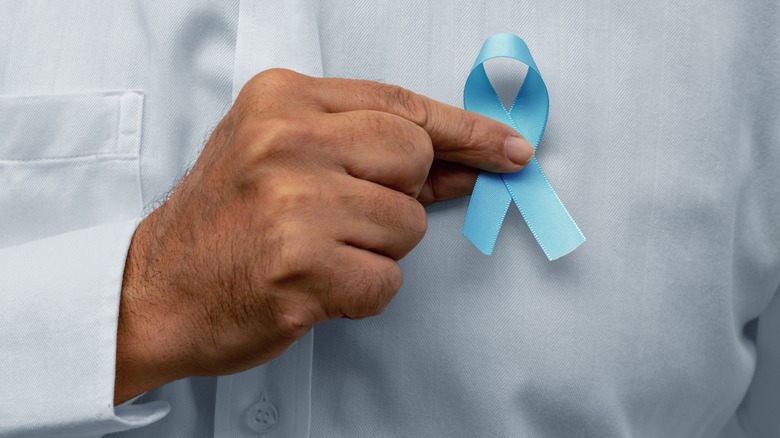Joe Exotic's Cancer Diagnosis Explained
Celebrity Joe Exotic of Netflix's hit documentary series "Tiger King" has revealed to fans over Twitter that he's received an official cancer diagnosis from his doctors; a diagnosis that has since been confirmed by his lawyer John M. Phillips.
According to CBS News, Joe's cancer, described as "aggressive" prostate cancer, was detected through a prostate biopsy conducted months after a high PSA blood test. Phillips elaborated on Joe's medical treatment process in a statement, saying, "The PSA test is a blood test used primarily to screen for prostate cancer. It was high months ago. He finally obtained biopsies. They revealed cancer."
Joseph Maldonado-Passage, the real name behind the nickname Joe Exotic, is currently serving a 22-year prison sentence on convictions related to wildlife abuse and a murder-for-hire plot against rival "Tiger King" star Carole Baskin (via CBS News). Phillips attributes the delay in Joe's medical care to his current prison sentence, going on to state, "Medical care is different in a prison environment and fewer options are available."
In a letter dated October 27, 2021, posted on Joe's Twitter profile accompanying his announcement, the letter expressed his wish to be released in order to receive medical treatment at home or to simply spend his remaining time with family and friends. In a previous statement made earlier this summer to The Sun while awaiting results, Joe had stated, "If it's stage three or four, I am going to let it take me" (via Yahoo! Entertainment).
Prostate cancer preventative measures
Prostate cancer occurs when there is an excess growth of cells in the prostate gland. The prostate is located below the bladder and can change in size as part of the natural aging process for men (via American Cancer Society).
Certain preexisting factors may contribute to the likelihood of developing prostate cancer, such as age, race, family medical history, or country (via Prostate Cancer Foundation). For example, in the United States, those ages 69 and older are more likely to be diagnosed with prostate cancer. Additionally, males in China have a 2% risk for prostate cancer, while males in the U.S. have an increased likelihood of 17%.
Lifestyle factors that can decrease a male's chances for developing prostate cancer range from diet choices to stress management, according to the Prostate Cancer Foundation. Eating certain vegetables such as cooked tomatoes, cauliflower, and broccoli can help protect against the development of prostate cancer, along with "good fat" proteins such as fish. Reducing consumption of red meat, dairy, and excessive amounts of supplements can also be beneficial. Exercising and not smoking are also two important ways to help maintain one's health and reduce the chances of developing prostate cancer.


